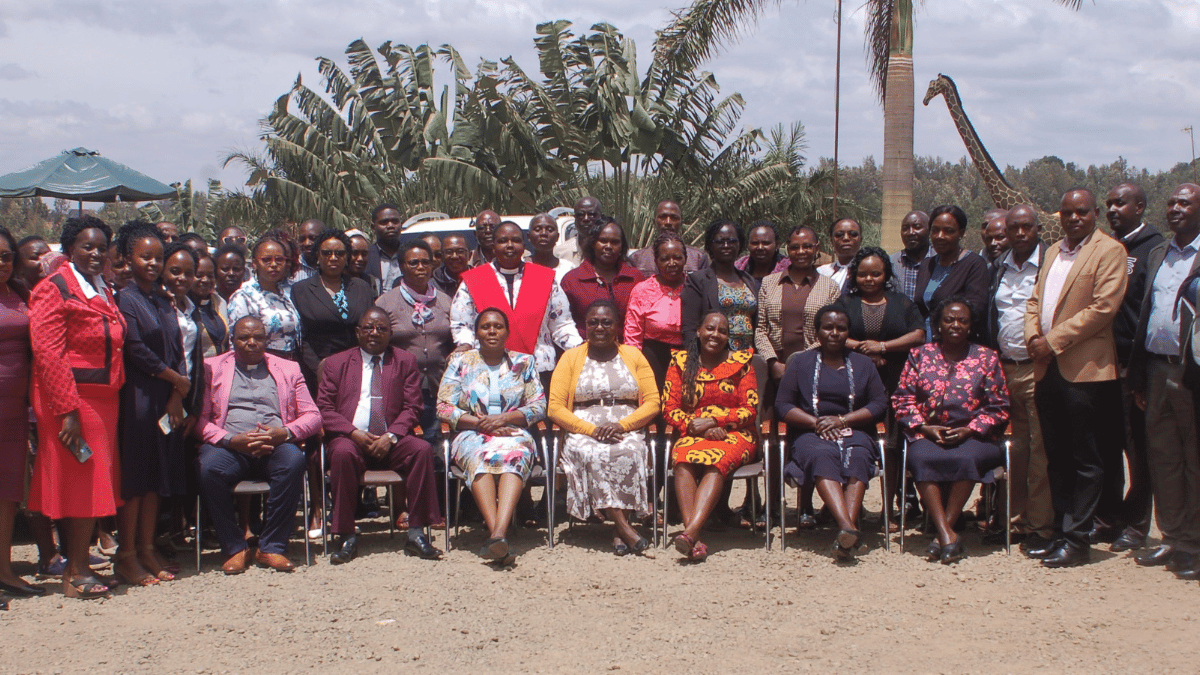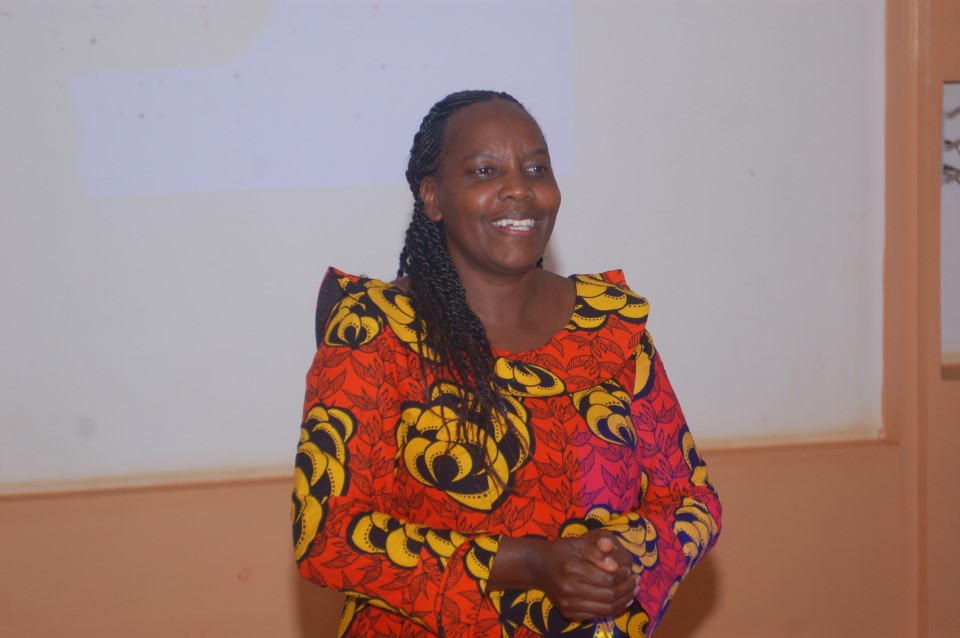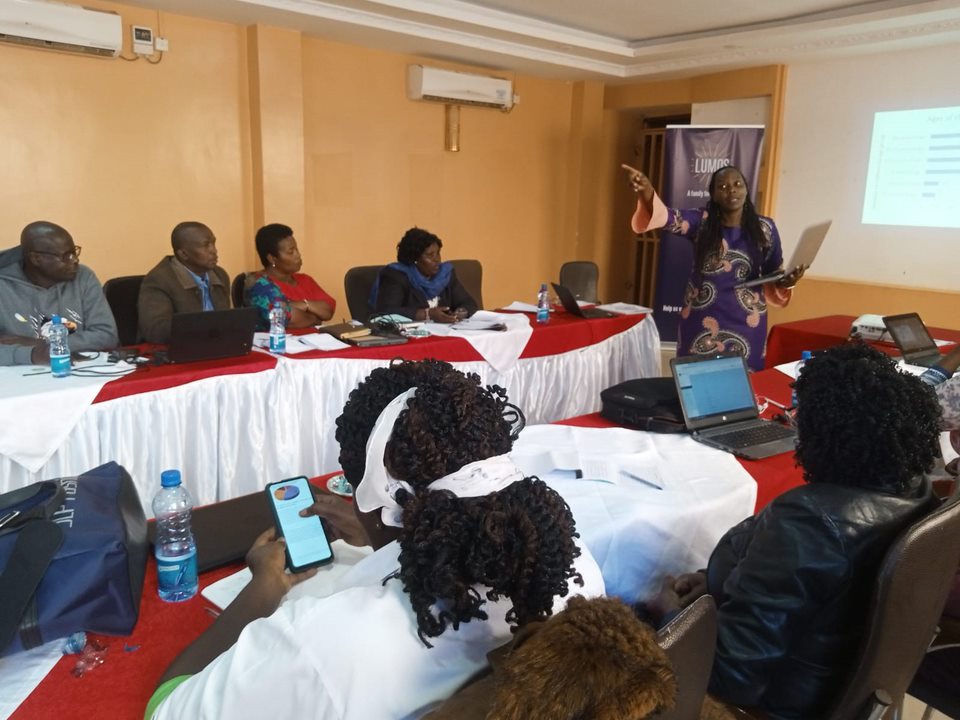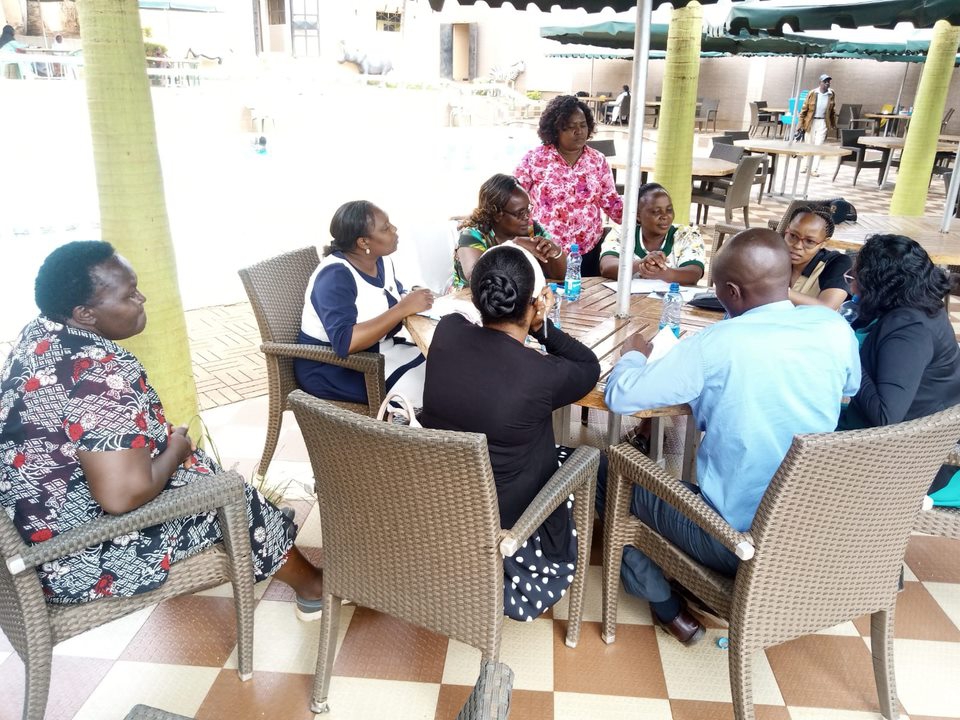Home What we do News & Stories Lumos supports provision of care reform training in Kenya
Lumos supports provision of care reform training in Kenya
04.04.2023

Earlier this month, Lumos, together with the National Council for Children’s Services (NCCS) and the Directorate of Children’s Services (DCS), held a strategic care reform training in Embu county, with the aim of progressing care reform implementation. There are 758 children and young people living in 13 residential institutions in Embu.
As well as kicking off the planning process, the four-day session also saw the formation of the County and Sub-County Care Reform Committees.

Grace Mwangi, Senior Technical Advisor at Lumos, delivering training
Opening session
In the opening session, Madam Carren Ogoti, Director of the Alternative Family Care Department, DCS, explained the background of the care reform process and explained that DCS is working on developing and strengthening the understanding and interventions for children with disabilities in Nairobi. Madam Mercy Gatobu, DCC Embu West, read the County Commissioner’s speech reiterating support for care reform.
Topics
The main topics for the training were vision, goals, objectives and expected results. These topics were covered in the context of the implementation phases, the pillars of care reform and the roles of various stakeholders. Participants were taken through the 10 elements of care reform to ensure holistic, systematic and systemic implementation. Technical guidance was offered during group work and the action plan session conducted by Lumos. The NCSS also presented management and co-ordination structures as well as legal and regulatory frameworks.
Grace Mwangi, Senior Technical Advisor at Lumos described the participants as being ‘fired up’ by the sessions, and keen to learn more about the harms of institutionalisation.
55 delegates attended the first three days of training, while the more focused, in-depth fourth day of training was attended by 19 participants.

Key highlights
County government support
Strong representation from the County Government paves the way forward on child protection issues. The County Assembly representatives promised to raise the Children’s Officers’ concerns related to child protection and a complain that child molestation cases are being lost in court due to lack of evidence. Commitment to promoting policies that will support childcare in Embu was expressed.
Wide stakeholder involvement
The training was attended by a number of Faith Based Organisations and CSO stakeholders, and also incorporated inter-governmental collaboration and peer learning for Tharaka-Nithi and Makueni Counties.

Cross-cutting issues
A member from the Ecumenical Council agreed to assist in mobilising the inter-religious group and reach out to representatives from the Muslim faith. Collaboration was also suggested between government agencies to ensure vulnerable children acquire relevant registration documents. It was felt that advocacy was required to provide guidance to contextualise youth and child participation.
Next steps
The next steps include finishing the work plans, holding a two-day meeting in the second week of May 2023 to finalise the work plans, developing key messages to align communications and advocacy, and taking advantage of community spaces for advocacy – especially during the weekends. The Children’s Officers are also to ensure that children should not be admitted into CCIs without passing through the children office.
It was also decided that the participants should create awareness for foster carers and begin identifying potential candidates to be taken through training. This means that recruitment of trainer of trainers to enhance training of foster carers will also be done. The CCI managers, administration, Directors and Board members are to be included as part of the work plan implementation.
More information:

